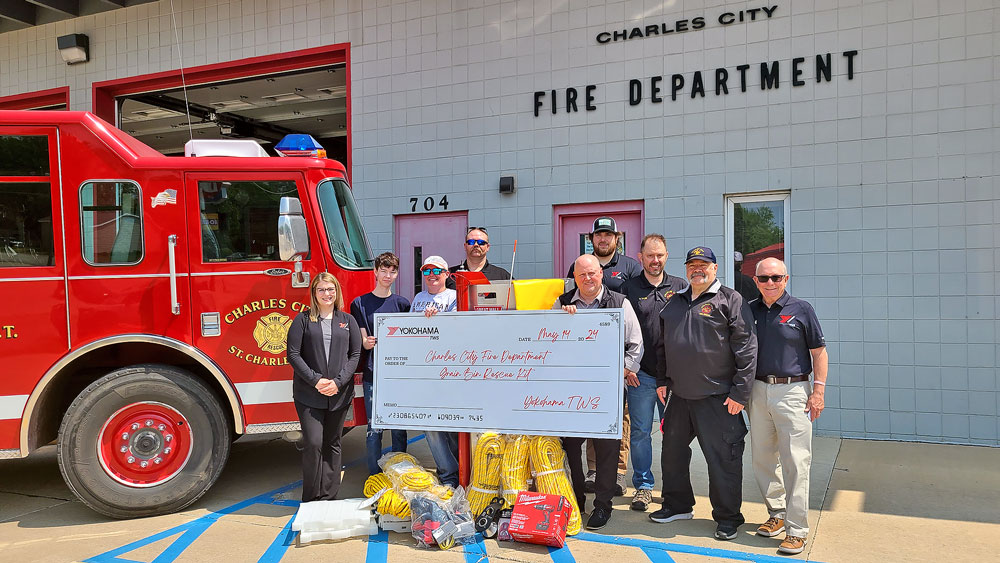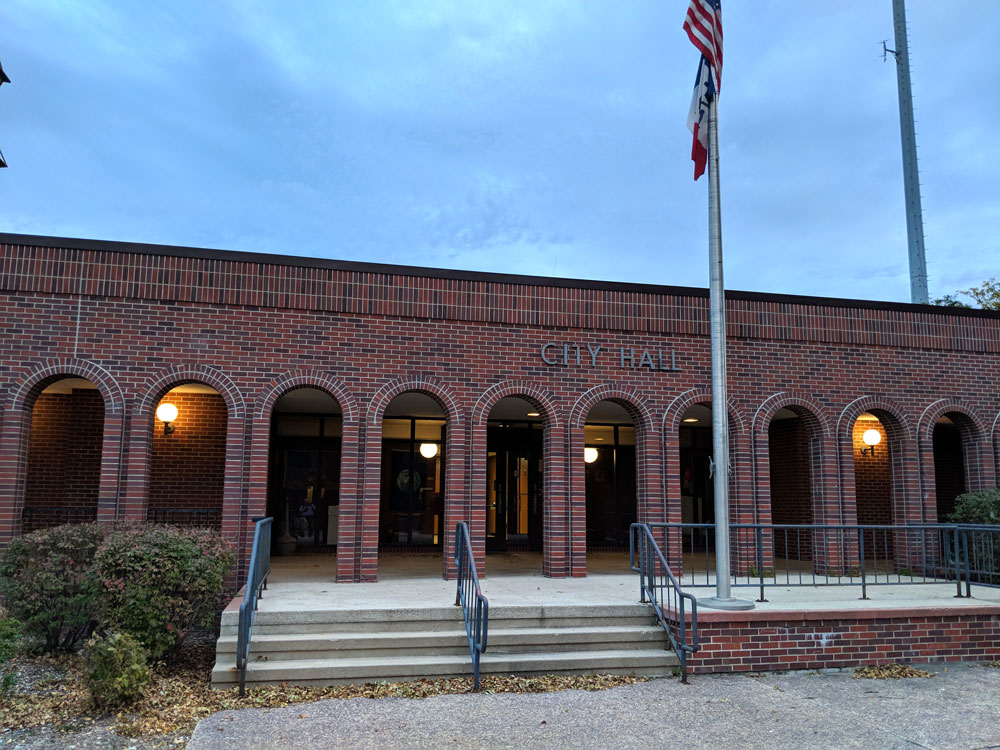P&Z Commission wonders about its role in county pipeline zoning
By Bob Steenson, bsteenson@charlescitypress.com
Members of the Floyd County Planning and Zoning Commission wondered if they would play a role involving a proposed county zoning amendment to regulate the siting of hazardous liquid pipelines in the county.
Floyd County Supervisor Chair Mark Kuhn assured them they would, despite a comment he made at a previous meeting.
Zoning commission members were at the Floyd County Board of Supervisors meeting this week to express their disappointment in the way the process had been playing out so far.
The supervisors on a 2-0-1 vote in January had hired an attorney to represent the county with the Iowa Utilities Board, which will decide whether to grant permits for two carbon dioxide pipelines that would pass through Floyd County, and if the permits are granted, whether to allow the companies to use eminent domain to acquire property easements from owners who do not want to sign voluntarily.
The attorney, Tim Whipple, with Ahlers & Cooney law firm in Des Moines, is also helping draft a proposed county zoning amendment that would guide where hazardous liquid pipelines can be located in the county, relative to such things as “residences, schools, hospitals, city limits, county conservation areas and animal feeding operations,” Kuhn said.
At a previous meeting, Kuhn had been asked why the board intended to deal with the proposed zoning amendment before having it go through the county Planning and Zoning Commision first, and Kuhn had replied that they were taking a “top-down approach.”
That comment – which was printed in coverage of the meeting in the Press – drew the attention of Zoning Commission Chair Dean Tjaden, who followed up with a column that was also printed in the Press, saying, “It is very troubling that all protocols and standard policies established by the County have been totally disregarded.”
Tjaden wrote that he wondered why county money was being spent on a Des Moines attorney when “over 80% of the Floyd County Landowner’s Easements have been agreed upon by landowners and the pipeline companies.”
At the supervisors meeting this week, Kuhn said his “jaw dropped” when he read Tjaden’s column, and he and Tjaden “had a good visit, but haven’t mended fences yet.”
“Dean, I don’t like the sound of my answer, “from the top down,” either,” Kuhn said to Tjaden at the meeting. “I regret saying it. I’d like to start over.”
Kuhn said they all knew that any proposed amendment to the county zoning ordinance would have to go through public hearings with the Planning and Zoning Commission.
Reading from a part of the current ordinance regarding amendments, Kuhn said he had been on the Board of Supervisors in 2011 when that ordinance was passed, and had made the motion to approve it, so he knew what it said.
But, Kuhn said, reading again from Tjaden’s column in the Press, the statement Tjaden made that the supervisors didn’t care what the Planning and Zoning Commission recommends “is totally inaccurate.”
He also said that although the board of supervisors had not met with Zoning Commission members, county Zoning Administrator Jeff Sherman had been involved in several discussions concerning the Board of Supervisors’ efforts to play a role in the pipeline permitting process, as well as the effects that the pipelines might have on county zoning and permits to cross county property.
“Bottom line, the hazardous pipeline ordinance is not going to move forward until the Board of Supervisors, the zoning administrator and the chair of the Planning and Zoning Commission agree to move forward together,” Kuhn said.
Ben Rottinghaus, the vice chair of the county Planning and Zoning Commission, said he had made a statement at the meeting in January where the supervisors agreed to hire Ahlers & Cooney that he was disappointed the Zoning Commission had not been involved in that discussion, either.
“I have not been spoken to about this whole project,” Rottinghaus said. “If you had, you might know that I have an engineering degree. If you had, you might know that I worked in the ethanol industry for two years. If you had you also might know that I know the very dangers of asphyxiation.”
Rottinghaus said that two months after he left his job with the ethanol industry, a coworker who he had supervised had died of asphyxiation in a fermenter tank.
“He lost his life, so I know the dangers of CO2, but I have training that I can understand Summit’s pipeline. I can understand the process they’re going to. Did I design it? No. But I can understand the safeties they’re putting in. But my input wasn’t asked for,” he said.
“That’s my role on the Planning and Zoning Committee, to provide input. You guys ultimately can reject any recommendation we make, overrule it. You can accept whatever, you can reject it. That’s your guys’ right as supervisors. But I’m supposed to be the public voice on this very subject, and we’re how many months into this and my voice has not been heard,” he said. “My disappointment continues to grow. My frustration continues to grow.”
Tjaden asked if, when the proposed ordinance does go to the Zoning Commission, if the commission will be allowed to hire outside legal counsel and experts to help it make a decision on a recommendation. That’s allowed in Iowa Code, he said, with the Board of Supervisors’ approval.
“Will you give us your blessings to use whatever resources we deem necessary?” Tjaden asked.
Kuhn said it would depend on the cost.
“We’d have to understand a little more about what type of outside resources you would need,” he said.
Several times during the discussion Kuhn said he was not opposed to either or both pipelines going through the county, and in previous discussions he has said that as a retired farmer himself he knows the importance of corn prices and ethanol production to the state, but he felt it was part of his responsibility to the county to fight for future economic development regarding the Summit pipeline proposing to go through the state-certified Avenue of the Saints Development Park, and to advocate for those property owners who might be facing eminent domain action.
In the end Kuhn said he would have the draft of the zoning amendment sent directly to the Planning and Zoning Commission when it was ready and they could begin the process of discussing it and scheduling public hearings.









Social Share